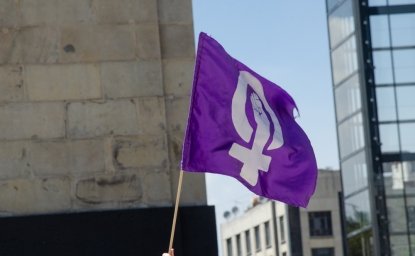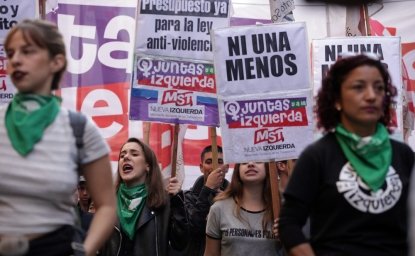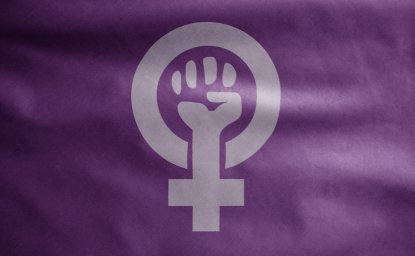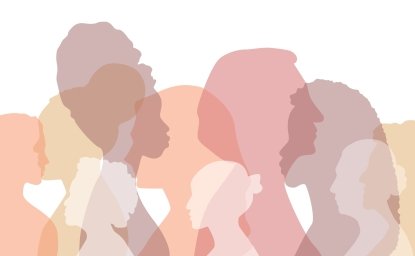Many women in the Middle East and North Africa are experiencing physical violence and are being pushed out of public life, according to a new report by the Woodrow Wilson Center for International Scholars. On the occasion of International Women’s Day 2013, the Middle East Program invited a cross-section of women activists, politicians, academics, and entrepreneurs to give their views on the challenges women face to their security. 42 women from 20 countries including the United States, Malaysia, Indonesia, and countries in the Middle East and North Africa (MENA) region shared their concerns, disappointments, and hopes for women. The following are excerpts from their responses, followed by a link to the full text.
Haleh Esfandiari, Director, Middle East Program, Woodrow Wilson International Center for Scholars
…The new constitutions of Egypt and Tunisia are vague on women’s rights, while the push in these and other countries for adherence to shari’a threatens women’s aspiration for equality under the law. Here, the experience of Iranian women should serve as a warning to women in the countries of the Arab Spring: the 1979 Islamic constitution, defining women’s rights under Islamic law, has meant institutionalizing unequal status. Iranian women have been waging a 30-year struggle to regain lost rights.
There are other danger signs. Progressive personal status laws in the countries of the Arab Spring are under threat. In Egypt, there was a move to lower the marriage age for girls to nine and to permit female genital mutilation. In Egypt, Libya, and Tunisia, there is talk of permitting polygamy once again—although polygamy and female genital mutilation are both barred under current laws. Governments in the region—signatories to the Convention on the Elimination of Discrimination Against Women (CEDAW) and UN Security Council Resolution 1325 on women, peace, and security—openly flout their international undertakings. In many countries, women can no longer obtain the necessary protection for their persons under either domestic laws or under international conventions.
2013 is the year for an all-out effort by women’s organizations, the private sector, civil society institutions, NGOs, and individuals to ensure the enactment and enforcement of laws to protect women against violence and marginalization.
Haifa Abu Ghazaleh, Special Representative to Civil Society for the League of Arab States Secretary General, Jordan
…Despite the fundamental role that women played in political mobilization during the Arab Spring, a post-revolution shadow has started to hang over their political, social, and economic rights. Women have begun questioning whether the rights gained under the previous regimes would be canceled, especially after the victory of mostly conservative parties in many countries of the Arab Spring.
Women are also asking questions regarding the repercussions of the uprisings on their social, economic, and human rights at the national, regional, and international levels, as well as how to amend or repeal laws that impede their progress in various fields.
The issue of women’s rights after the revolutions is controversial, especially with the rise to power of fundamentalist movements. Management of this transitional phase into democratic transformation—and women’s role in this stage—is vital, particularly the process of redrafting national constitutions that currently guarantee full and equal citizenship for women and all classes…
Raya Abu Gulal, Lawyer and Co-Founder, Women Lawyers Group-Middle East, Iraq
…Security issues for women have a serious impact on the society as a whole. Growing exploitation of women, particularly from extremist groups, such as in Iraq and Syria, has seen a steady growth in rape, violence, suicide bombing, trafficking, prostitution, narcotics smuggling, and other adverse social trends. This has also led to an increase in women suffering mental problems and other acute illnesses, which further impact society and families, with especially severe effects on children.
Governments in countries such as Iraq, Egypt, Tunisia, and Syria do not appear to be concerned with taking genuine steps to improve the security situation for women. This is also the result of the bureaucratic and inefficient nature of the political process in these countries…
Wajeeha Al-Baharna, President, Bahrain Women’s Association for Human Development
…Women in the MENA region face many challenges. One of the most prominent challenges is discrimination against women and gender-based violence, which consequently affect women’s stability and security and act as obstacles in their humanitarian role and contribution toward development. Women feel threatened and insecure even under normal conditions, so during times of war and conflict, these challenges become more challenging and usually result in more suffering due to the chaos, insecurity, and economic recession…
Fahmia Al Fotih, Communication Analyst, United Nations Population Fund (UNFPA), Yemen
…Economic insecurity is one of the challenges that women face at present. Due to conflict, like in Yemen, many women have lost their sole breadwinners (usually a husband, father, or brother), leaving them economically susceptible. This is because illiteracy is shamefully high among those women, especially in rural areas where the majority of women live.
Yemen, for instance, also has witnessed conflicts and wars in recent years that resulted in the displacement of massive numbers of people in the North and South. Women and girls composed a large portion of the internally displaced persons (IDPs). Women and girls caught in such circumstances are the most vulnerable groups. In such settings, women are subjected to different forms of gender-based violence (rape, sexual exploitation, etc.) as well as deprived of access to life-saving and basic services that put their lives and their children’s lives at risk. They are psychologically, socially, and economically battered…
Click here for the full text.




